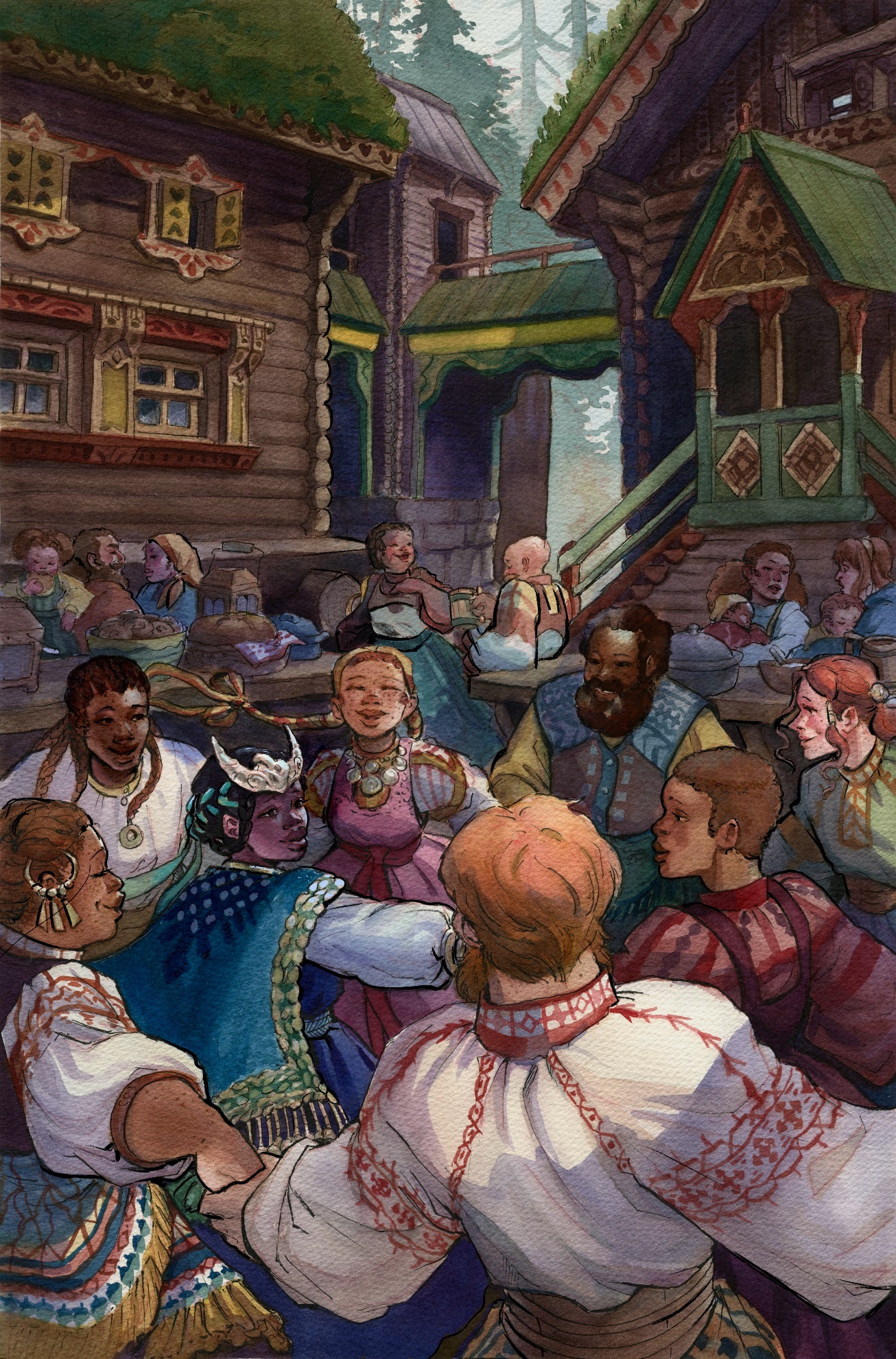Chapter 87:
Paapacki Ring Dance
Paapacki had already started the festival by the time they returned.
Poles were decorated with banners of ribbons, garlands of spring flowers, woven walls of budding tree branches – the air tinkled with decorative tin coins hung on strings like windchimes.
Lanterns hung or stood where there was space for them, unlit but waiting, promising that the celebration was going to extend into the night.
Moth and her group crossed to Paapacki, but as they started to go through the gate, young people on the fence above them turned over buckets of petals, bathing the burial party in yellow, white and pink, while wildly spinning cog rattles – the cacophony was incredible, and it alerted the Pahkinnas inside that the leaders had returned.
Pahkinna’s seemed built for cheering, for celebration – half had already flung off their shoes and were racing, dancing, half-drunk across the property to meet their exalted guests with no thought of dignity.
Today was not meant for dignity – it was meant for joy.
Moth knew she could be one or the other, but she could not be both, and so she kicked off her shoes, leapt from Aggo, grabbed the nearest two people and began to dance – soon Ama was in their midst, joining the ring dance.
The musicians were on their feet, and a chorus of drunk Pahkinnas were bellowing out the songs – songs of the sun returning, songs of harvest and love, songs of the ferryman.
